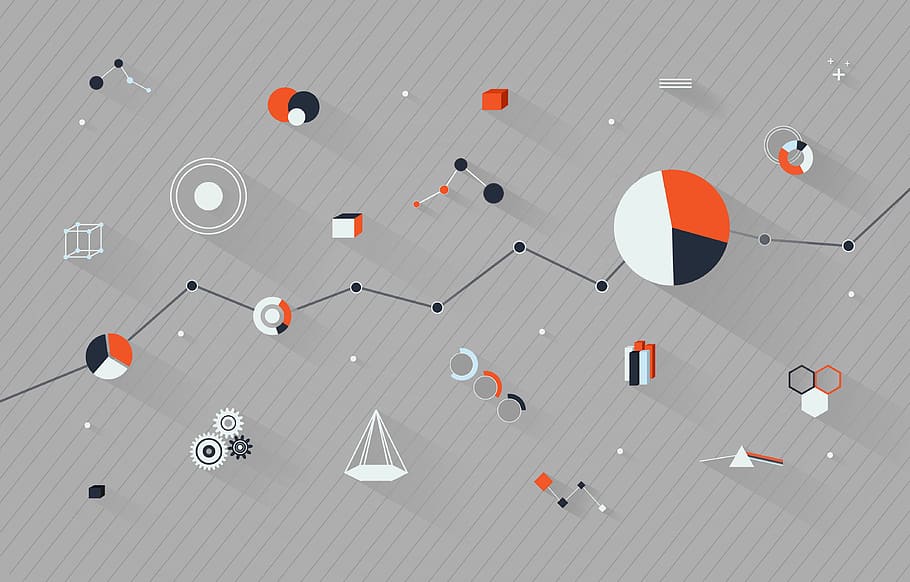
The purpose of the master study program Advanced Data Analytics is specialization in data analytics, primarily for students who have already completed their BSc studies in a quantitative discipline, but also for students with backgrounds in other disciplines.
A need for this study program comes from a higher demand (world-wide, but also in Serbia and in the region) for experts in data analytics in wide range of different fields who can intensively use current data analytics technologies in their work. Job offers, marketplace flow, as well as trends in economy, society, public administration bodies, and other public institutions, undoubtedly point to that fact.
Program structure
Due to the fact that the graduate study program Advanced Data Analytics is designed for students with different backgrounds, the program has in its offer several courses related to mathematical foundations of data analytics, as well as several courses related to computer science and computing tools used in data analytics. In addition, several courses cover application of data analytics in different domains, like social and medical sciences. Many of the courses offered present their topics putting them also in the context of collaboration and communication skills, legal regulations and ethical norms.
The total number of ECTS credits for this 3-semester study program is 90. All courses are one-semester courses. The curriculum includes 23 elective courses, mandatory internship, qualification paper (term paper) and master thesis. Courses are worth 6-10 ECTS credits, the qualification paper 5 ECTS credits, internship 3 ECTS credits, and master thesis 10 ECTS credits.
The study program Advanced Data Analytics does not have modules, but a rich offer of elective courses allows students to select those courses that lead them towards the improvement of their knowledge in selected disciplines of quantitative sciences. The structure of this study program reflects the right balance between thematic fields of data analytics foundations and specific application areas.
There are three groups of elective courses in the study program Advanced Data Analytics. The first group covers mathematical and statistical foundations of data analytics, such as calculus, linear algebra, discrete structures and the like, for students who need to improve their background in mathematics (Discrete structures, Mathematical Foundations of Data Analysis, Analytics and optimization) and probability and statistics (Introduction to statistical inference, Models of statistical learning, Introduction to complex networks theory). The second group covers computing skills, tools and technologies for data analytics. These include programming, database technologies and working with large volumes of data (Programming, Databases, Big data analytics), different topics in artificial intelligence necessary for advanced data analytics (Artificial intelligence / Machine learning, Neural networks and deep learning), and specific topics and tools that help data analysts in working on practical problems (Data visualization, Text mining and Social network analysis). The third group is about applying data analytics skills, tools and techniques in different domains. The current focus is on social and life sciences, but the study program is open for extensions by elective courses covering other domains.
Competences of graduates
Students who have completed the master program Advanced Data Analytics at the University of Belgrade become competent in:
- independent work in analyzing datasets of different complexity in selected domains, with advanced use of current data analysis tools and technologies
- preparing, modifying, adapting and combining datasets for analysis, out of raw data produced from different applications and other sources
- involvement in various interdisciplinary working teams where data analysis skills in different disciplines and mastery of current data analysis tools and technologies are expected, not only in solving routine practical problems, but also in non-standard situations where creativity and research approach are required
- working with large sets of data
Subject-specific competencies of graduates include:
- ability to understand and analyze different datasets from the perspective of mathematical underpinnings of advanced data analysis (linear algebra, calculus, discrete mathematics, high-dimensional geometry, optimization, etc.)
- mastery of statistical underpinnings of advanced data analysis (data summaries, hypotheses testing, data variance, data correlation, probability and probability distribution functions, applying descriptive and inferential statistics to datasets, etc.)
- programming using state-of-the-art programming languages in data analytics
- skills in using advanced and appropriate data visualization techniques, as well as current software tools and technologies that enable creating rich data visualizations


